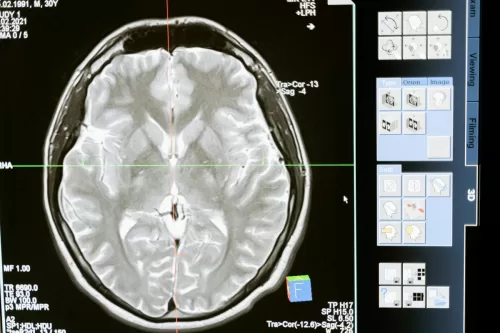Rigid Routine: Why Being Inflexible Can Harm Happiness

While rigid thinking and being inflexible can be hard and even emotionally painful to depart from, letting some of the rigidity patterns go (or at least minimizing them) and being more flexible with a daily routine can result in a better quality of life for most. Breaking out of your comfort zone and thinking in new ways while moving on traditional autism literal thinking can be transforming. But it’s not always possible for everyone on the spectrum.
Individuals with Autism spectrum disorder (ASD) are known for having rigid thoughts and an inflexible routine, behavior, and insistence on sameness. While flexibility and open-mindedness may come naturally to many neurotypical individuals, people on the autism spectrum frequently struggle with cognitive and behavioral rigidity that can manifest itself in various ways throughout their daily lives. However, this complexity of thought is simply an inherent part of the wonderful diversity of the human mind.
Insistence on Routine and Sameness
For many autistic individuals, an extreme need for routine, and being inflexible with any degree of change in their environment and daily schedule is apparent from a very young age. Seemingly minor tweaks to their typical routines can cause immense distress, confusion, anxiety, or even meltdowns. This rigidity may stem from a deep desire for predictability, control, and constancy in their sensory and cognitive experiences.
When the world feels chaotic, unpredictable, and overwhelming due to heightened neurological responses, sticking to familiar routines can help create a sense of order and safety. Unexpected changes force the autistic mind to constantly re-orient and adapt, heightening feelings of stress and sensory overload. Routine provides stability, comfort, and freedom from surprise shifts that disrupt equilibrium.
Even simple adjustments like changing the order of daily rituals or taking a different route to a familiar destination can be highly upsetting for some autistic individuals who exhibit extreme inflexibility. Their thought processes get “stuck” on how things should be, making it extremely difficult to embrace deviations easily. Despite logical understanding that the changes may be insignificant, their neurology fights against disruptions to expected norms.
Perseverative Interests and Behaviors
Autistic individuals frequently develop remarkably deep, intense interests or even obsessions and can spend countless hours researching, discussing, and exploring every conceivable aspect related to their preferred topics. These special interests are narrow in focus and orientation, and the person often exhibits an unwavering dedication to learning as much as possible about their chosen area of passion.
From Caribbean pirate history to quantum physics to national parks – the topics of interest are wide-ranging and autistic people readily become experts through their fervent studies. However, they tend to struggle when attempting to shift their rapt attention away from their beloved subjects. This single-mindedness and pervasive thought demonstrates the autism literal thinking frequently seen.
Attempts by others to redirect or change the subject can create extreme frustration as the person’s mind remains paralyzed in its fixation. They may feel driven to continue discussing their favored topics to an excessive degree due to the comforting predictability it provides their brain. Neurotypical communication partners often fail to appreciate the depth of joy, safety, and stability these special interests grant to the autistic mind.
Black-and-White Thinking Patterns

For the autistic mind, something is either right or wrong, good or bad, with little flexibility in considering contexts, exceptions, or middle grounds.
This inclination toward polarized thinking can substantially impact decision-making abilities, problem-solving skills, and dealing with uncertainty or ambiguity. Autistic individuals may become paralyzed when faced with decisions requiring nuanced analysis, struggling to weigh multiple perspectives and account for variables.
Instead, their neurology aims to solidify situations into clear categorical and inflexible absolutes for easier processing and decision-making. In conversations, this tendency towards black-and-white thinking frequently manifests in autism literal thinking interpretation and understanding of language and contexts.
While absolutist tendencies can help autistic people dismantling complexities into more understandable component parts, they struggle with the subjectivity, ambiguities, and shades that color much of human communication and experience. Their rigid thinking pushes them to find objective clarity and solidify concepts into defined realities.
Difficulty with Transitions and Change
Rigidity in thinking patterns often makes it extremely challenging for autistic people to transition between activities, conversations, or physical environments smoothly. Their minds tend to get “stuck” focusing on the original routine, situation, or interest with extreme inflexibility, making it enormously difficult to easily shift attention and cognitive gears.
Unexpected changes in schedules, abrupt transitions, or disruptions to the expected order of things can trigger immense stress, overwhelm, or withdrawal as the autistic mind fights to remain centered on its original single-track focus. The ability to smoothly transition and adapt to changes requires substantial cognitive flexibility.
From an early age, autistic children often exhibit extreme distress and resistance to transitional periods like moving from one activity to the next or leaving a favorite place. This resistance is not willful defiance or manipulative behavior, but rather an innate neurocognitive tendency toward rigid thinking. Without support systems and patient guidance, these inflexible transition difficulties tend to become deeply ingrained habits and autistic adults often struggle just as profoundly as children in this respect.
Social-Emotional Implications
While cognitive and behavioral rigidity is one of the core diagnostic criteria for autism spectrum disorder, it impacts far more than just patterns of thought and routines. Because social skills, communication, emotional intelligence, and pragmatic understanding rely heavily on cognitive and behavioral flexibility, autistic individuals frequently face tremendous challenges in these interconnected areas of life.
Difficulty with social perspective-taking, recognizing and responding appropriately to shifting social contexts and cues, and understanding pragmatic language examples necessitates cognitive flexibility. Rigid interpretation and focus on objective reality creates confusion and frustration in navigating social nuances. As a result, individuals with ASD may inadvertently come across as socially inappropriate or insensitive, or due to their challenges with that come with autism literal thinking.
Cognitive Strengths of Rigid Thinking
While often viewed solely through a deficits-based lens, the cognitive rigidity that characterizes autistic rigid thinking can actually provide certain strengths and advantages. Many of the most brilliant minds throughout history, from inventors and scientists to philosophers and artists, have likely exhibited traits of rigid thoughts that fueled their ability to revolutionize how we understand the world.
Pattern Recognition and Problem-Solving
The intense attention to detail and pattern recognition skills seen in many autistic individuals can be powerfully enhanced by their propensity towards rigid cognitive styles. Their brains hyper-focus on minute particulars, categorizations, and adherence to rules in highly systematic ways. This ability to see complex systems through analytical and sequential patterns facilitates enhanced problem-solving capabilities in multiple disciplines.
From identifying logical errors in coding to detecting anomalies in data sets to innovating systems analysis approaches, the autistic preference for absolute rules and predictable patterns becomes a significant asset. Rigid thoughts allow autistic minds to persevere through intricate processes with laser-focused intensity in ways neurotypical cognition may miss or abandon when facing ambiguities.
Memory Capabilities

This superior memory and recall for subjects of rigid interest grants a level of expertise and mastery that often outpaces their normative peers. From reciting encyclopedic volumes of knowledge about Viking history to recounting incredibly nuanced details from decades ago, the tenacious encoding of knowledge fueled by autistic rigidity of thought creates prodigious capabilities in specialized areas.
Conscientiousness and Moral Reasoning
The tendency towards absolute thinking frequently ascribed to the autism cognitive style does not necessarily equate to shallow or simplistic moral reasoning capabilities. In fact, many autistic individuals exhibit a strong sense of right versus wrong and exceptional passion for social justice causes rooted in their convictions.
While difficulties with social pragmatics create challenges in lived applications of moral relativism, many autistic thinkers are able to logically recognize universal principles of ethics through hyper-focused analysis and rule-based systems of thought. They may fail to inherently grasp the shades of grey in a given scenario, but prove exceptional at consistently applying moral absolutes across contexts through impartial objectivity.
Autistic people frequently exhibit steadfast determination to adhere to rules, a strong desire for truth and accuracy, minimal susceptibility to biased distortions of reality, and challenges with situational rationalization – qualities that often strengthen moral conviction and ideological consistency. While struggles with nuanced applications exist, many exhibit a clear preference for truthfulness and rigid application of principles over ethical relativism.
Attention to Detail and Quality Assurance
In many professional spheres, cognitive rigidity represents an invaluable asset in roles that require strict adherence to protocols, procedures and accuracy in outcomes. Autistic employees frequently excel in detail-oriented fields like inspection, quality assurance, and analytics due to their hyperfocus, drive for perfection, and comfort with highly repetitive tasks.
From carefully reviewing code to auditing financial records to rigorously testing products, the ability to maintain sustained concentration and rigid application of rule-based processes is critical. While cognitive flexibility is essential for many jobs, certain sectors absolutely require rigidity and resistance to deviations of rigid thoughts from established protocols.
Recommended Supports and Accommodations
Despite the potential upsides to rigid cognitive styles, the challenges posed in educational, professional and social realms create immense accessibility barriers for many autistic individuals throughout life. Providing proper support structures and accommodations can help alleviate anxiety and facilitate greater inclusivity:
- Consistent use of visual schedules and advanced preparation for transitions
- Patient guidance through unexpected changes with ample processing time
- Respect for special interests and opportunities to share knowledge
- Clear rules, rubrics, and explicit instructions for tasks/assignments
- Modified expectations for cognitive flexibility in roles where rigidity is an asset
- Pragmatic language instruction and social skills support groups
- Sensory-friendly environments limiting surprises/disruptions
- Promoting neurodiversity inclusion and cultural understanding
By proactively meeting autistic people’s needs for sameness, routine, and rigid cognitive preferences, society takes crucial steps towards becoming more universally accessible. Creating supportive environments that allow space for cognitive diversity enhances opportunities for brilliant autistic minds to thrive.
Embracing Neurodiversity
Despite the often frustrating manifestations of rigid thinking patterns, this cognitive style represents a core thread in the beautiful neurocognitive diversity that exists within the human species. Like any neurological trait, cognitive rigidity exists on a spectrum with both potential drawbacks and strengths. For many autistic individuals, intense focus, attention to detail, and depth of knowledge in areas of special interest are innately tied to cognitive rigidity.

Recognizing, respecting, and embracing this neurodiversity as a wonderful part of the human condition allows society to support and accommodate the needs of those on the autism spectrum. By meeting autistic people where they are rather than pushing them to rigidly conform to expectations of cognitive flexibility, we create space for their brilliant minds to thrive authentically.
Cognitive rigidity is a fundamental trait in many autistic individuals that should never be viewed as a personality flaw or something requiring correction. It is simply a core part of their neurocognitive wiring.
With support structures in place like visual schedules, transitional warnings, preparation for changes, and patient guidance, autistic people can develop greater cognitive flexibility and adaptability over time. Therapeutic interventions like cognitive behavioral therapy, social skills groups, and pragmatic communication training provide crucial tools for reducing being inflexible.
However, even with such supports in place, a certain rigidity of thought will likely persist for most autistic individuals. Rather than attempting to reshape autistic cognition into a non-autistic mold, the goal should be providing, accepting and accommodating environment that allows rigid and flexible thinkers to co-exist harmoniously.
By developing a deeper understanding and appreciation for the unique neurocognitive diversity encompassed within the autism spectrum, society inches closer towards a world of inclusion, understanding, and respect for all modes of human mind and experience.
Additional Common Autistic Behaviors
There are many behaviors associated with having autism. Keep in mind that everyone presents differently, which is why it is caused a spectrum disorder. However, there are common autism behaviors. Learn more about them.
- Autism and Eye Rolling: Why It’s Odd, But Perfectly Okay
- Eye Contact Avoidance: 8 Best Ways to See Eye to Eye
- Behaving Badly: Is Using Autism as an Excuse Ever Right?
- 10 Proven Techniques for Managing Autism and Sensory Issues
- Understanding Neurodiversity: Uprising of the Neurodivergent
- 5 Ingenious Ways for Creating Boundaries in a Relationship
- Autism and ADHD: Making Sense of the Overlap
- Autism Masking & Code Switching: How to Redefine Acceptance
- Autistic Stimming Behaviors: Why We Do and How It’s Important
- Bottoms Up: Flipping Your World with Vestibular System Therapy
- OCD and Autism: Could You Have One Condition or Both?
- Autism in Sports: Hyper-Focus Can Be A Commanding Competitive Advantage